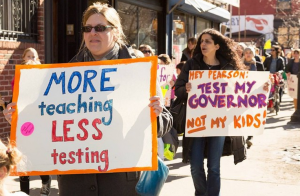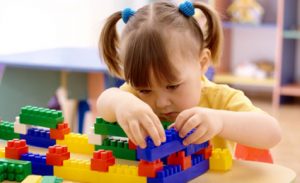In any competition there are winners and losers. We learn from our mistakes or at least that’s what we like to tell ourselves. Whilst we cannot protect our children from experiencing setbacks, it is the nature of the defeat that shapes our character. I am not an advocate of wrapping children up in cotton wool but surely there should be a limit to how much we should expose them to failure, in terms of frequency and intensity. Robustness takes time to instil in a child.
On many a classroom wall there is a star chart, tallying up points for good practice for each child. Healthy competition? Providing a challenge and motivation? Invariably it is the same pupils that win (usually the most able or the naughty ones). Consider the quiet, compliant child at the back of the class. They barely get noticed. In fact there can be only one winner. How many times do you have to lose before you give up?
In China, classes are taught in mixed ability groups. Lists are put up for all to see, showing the rank order of best to worst. The ones at the bottom are, literally, named and shamed and this in a culture that places a strong emphasis on family honour. Achievement is raised through negative motivation. Nobody wants to be bottom so they work like stink to avoid being the class dunce. They are subjected to this trauma from when they first start school at the age of five. It is no wonder suicide rates among teenagers are so high in the Far East.
Those over a certain age might be wondering what all the fuss is about. We were also taught in very large classes, using a chalk and talk approach. School reports always showed your position in the class. Failure meant ridicule, laziness was sanctioned. ‘It did us no harm’ you say, but I bet you can all remember every blow as vividly as if it were yesterday. What have changed are the motives that drive education. The difference between then and now is that children were not seen as a commodity.
In Jersey, each teacher’s performance is monitored to ensure that every child in the class follows a linear progression in their learning. Deviations are seized upon, pressure is brought to bear on the teacher and subsequently on the pupil, to bring them back into line. What if the child is suffering a family trauma? Should we not expect that the child be excused such pressures, at least until the problem eases?
When every grade matters it is easy for the wellbeing of the child to be compromised for the sake of raising achievement. As a parent what comes first, your child’s wellbeing or getting those grades? It should be a ‘no brainer’ but for those in education the choice is not so straightforward. We are now hearing the football manager’s cliché ‘we are in a results business’ echoing in the educational corridors of power. But should education be just about results? And if so, why are those not delivering, sacked, as football managers frequently are?
Be under no illusion, it is not just pupils that are now competing. Each and every school on the island is in competition with the other (we’ve all seen the banner at the top of St Saviour’s Hill). There institutional micro-management? It is compromising the ability of teachers to take a holistic view of the children? We exchanged one form of abuse for another. Are our children winners or losers in this game?
At what point does zealousness on the part of the professionals become exploitation of the child? What checks and balances are in place in school to ensure that the unscrupulous do not cross the line in their desire for ever higher results? Accountability should be as rigorous when it comes to wellbeing as it is in the pursuit of academic improvement. Yes there are policies and support in situ but surely it is more important to be pro-active and this involves putting the wellbeing of pupils and staff before results. There can be no compromise.
The statistics regarding child mental health are a worry, so we need to know if there is any substance to these tales being told out of class. And what of the teachers? Stress and anxiety are contagious. How can we expect staff to be understanding of the pupils when they, themselves are not in a ‘good place’? We need to get at the facts and this can only be achieved by asking those directly involved, the pupils and the teachers.
Adapted from article in JEP


